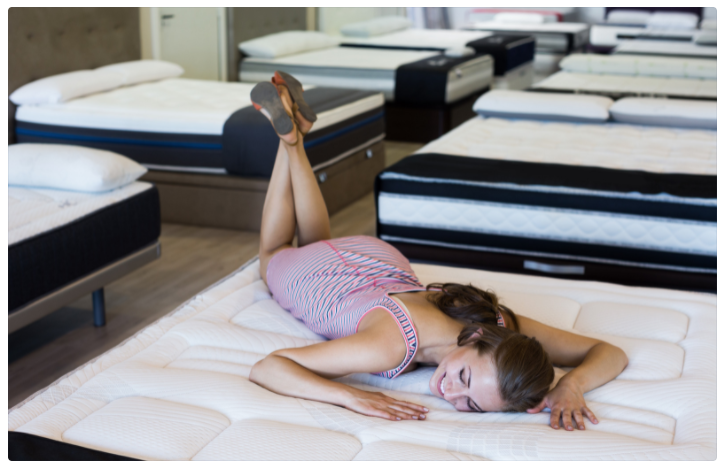
A mattress is one of the most important purchases you’ll ever make—after all, you spend approximately a third of your life in bed. Although the number of choices can feel overwhelming, you don’t have to lose sleep over it if you heed these hints:
- Size matters. If you’re sharing a bed, you should buy at least a queen-size mattress. A healthy person moves 40 to 60 times a night and makes lots of full-body turns. For sound sleep, you need freedom of motion.
- Test-drive different models. Wear comfortable clothes and shoes you can easily slip off so you can lie down. Compare a variety of support levels and styles within your budget.
- Look under the hood. Ask the salesperson to show you illustrated or actual “cutaways” of the interior of the different mattresses and foundations. The mechanics of innersprings and foams vary widely, which can greatly affect comfort.
- Use a reputable dealer. Furniture stores, department stores and sleep specialty shops all sell mattresses. Ask friends and family for referrals. If you don’t feel your salesperson is knowledgeable or helpful, take your business elsewhere.
- Buying online? If you choose to buy a mattress online, you won’t have the chance to try it out, so read the reviews, carefully check return and shipping policies—and be certain there’s customer support should a problem arise.
- Go for the best value, not the lowest price. To ensure long-term performance, buy the highest-quality sleep set you can afford. View it as a 7- to 10-year investment in your health and well-being.
- Be sure it contains certified foam. A key consideration is that the flexible polyurethane foam in the mattress meets standards set by CertiPUR-US—a certification program administered by a not-for-profit organization—for content, emissions and durability. This internationally recognized foam certification program was established to combat substandard imported foams, some of which contained substances banned in the U.S. or listed by environmental and regulatory groups as containing chemicals that may cause cancer or genetic defects or damage fertility. The foam used in pillows and upholstered furniture can be certified, too.

Recent Comments